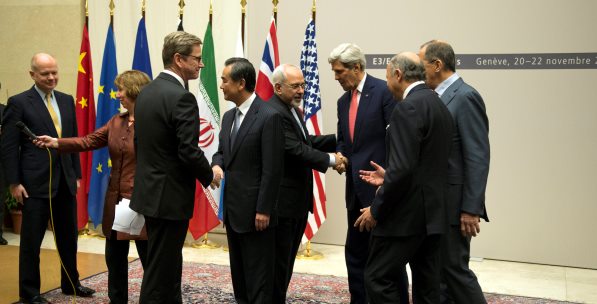Iran has reached an agreement with the West after about a four-year delay. Exactly four years have passed since Turkey and Brazil prepared the Tehran accord between Iran and the West, and convinced Iran for reconciliation. After mutual threats, bluffs and statements flattering nationalist feelings that we have been hearing often for four years, with just critical timing, the agreement envisaging a six-month period was signed in Geneva.
Let me underline a few points about the agreement:
- The circles lamenting that “the axis of Turkish foreign policy is shifting” are completely proven wrong with this deal because the outlines of the agreement, after four years, have not been much changed. Turkey, on the other hand, has taught a lesson of consistency to the “circles of axis” by maintaining her attitude of prioritizing diplomacy, which it had been adopted four years ago, even after four years during a period of tension with Iran on Syria.
- In brief, Iran has agreed to retreat in the uranium enrichment programme in exchange for easing off the sanctions. Iranian President Hassan Rouhani is aware that he cannot rule the country without straightening out the economy. The Iranian economy has collapsed due to the sanctions and corruptions. Therefore, the newly elected president prioritizes the economy over nuclear issues for now. To that end, Iran has welcomed the agreement.
- The West-Iran relations, which had been strained by the 1979 Islamic Revolution and the hostage crisis, entered a crisis period when the nuclear issues and the Iran phobia of Israel and the Gulf were added on top of this. Now, the West makes an effort to win Iran back because a controllable Iran is the most natural ally of the West in the region. With the expectation of toning down the Iranian nuclear programme to a controllable level in the long run, the West is also pleased to have a deal.
- It is better to talk prudently about where this accord will take the West-Iran relations. We are talking about a six-month period in which the sides are obliged to meet certain liabilities. If we include Israel and Saudi Arabia regarding the deal as a “historic mistake” not as a “historic accord” in the equation, we have a long and impracticable road ahead.
- The agreement should not be read only in the context of nuclear issues. The US stance comes closer to that of Russia and Iran as far as the conflict in Syria is concerned, and the US has left the Syria problem to these two countries. In the agreement signed inter alia, the US has given Iran more action space in the Syrian issue while the sanctions over Iran are relaxed. Iran and the West have a rapprochement at the cost of the blood of Syrian people. If the Geneva II meeting is held, we will clearly see on which points the US converges with Iran when it comes to Syria.
- Regarding the agreement, comments such as “Man! These Persians know diplomacy” are made. Beside the debates over the “Persian diplomacy”, I am of the opinion that the West, rather than Iran, is the reason behind why this deal has failed four years ago yet is signed today. On the issue of Syria, what have given Iran more action space in Syria are not the talented Iranian diplomats but the Shabbihas and the Iranian army that have been actually in war in Syria for about three years.
- As a soft power country, Turkey gains economic and political acquirements from every development causing stability in the region. This agreement, as well, will bring especially economic benefits to Turkey. However, Turkey will not be pleased with the agreement’s implications about Syria. The reason is that there is a strong connection between this agreement and the Geneva II meeting which is planned on Syria and this connection signals the US-Iran-Russia rapprochement about Syria. Not too much meaning should be attributed to the Geneva II talks; still, this rapprochement will be one of the obstacles before the real friends of Syria.







